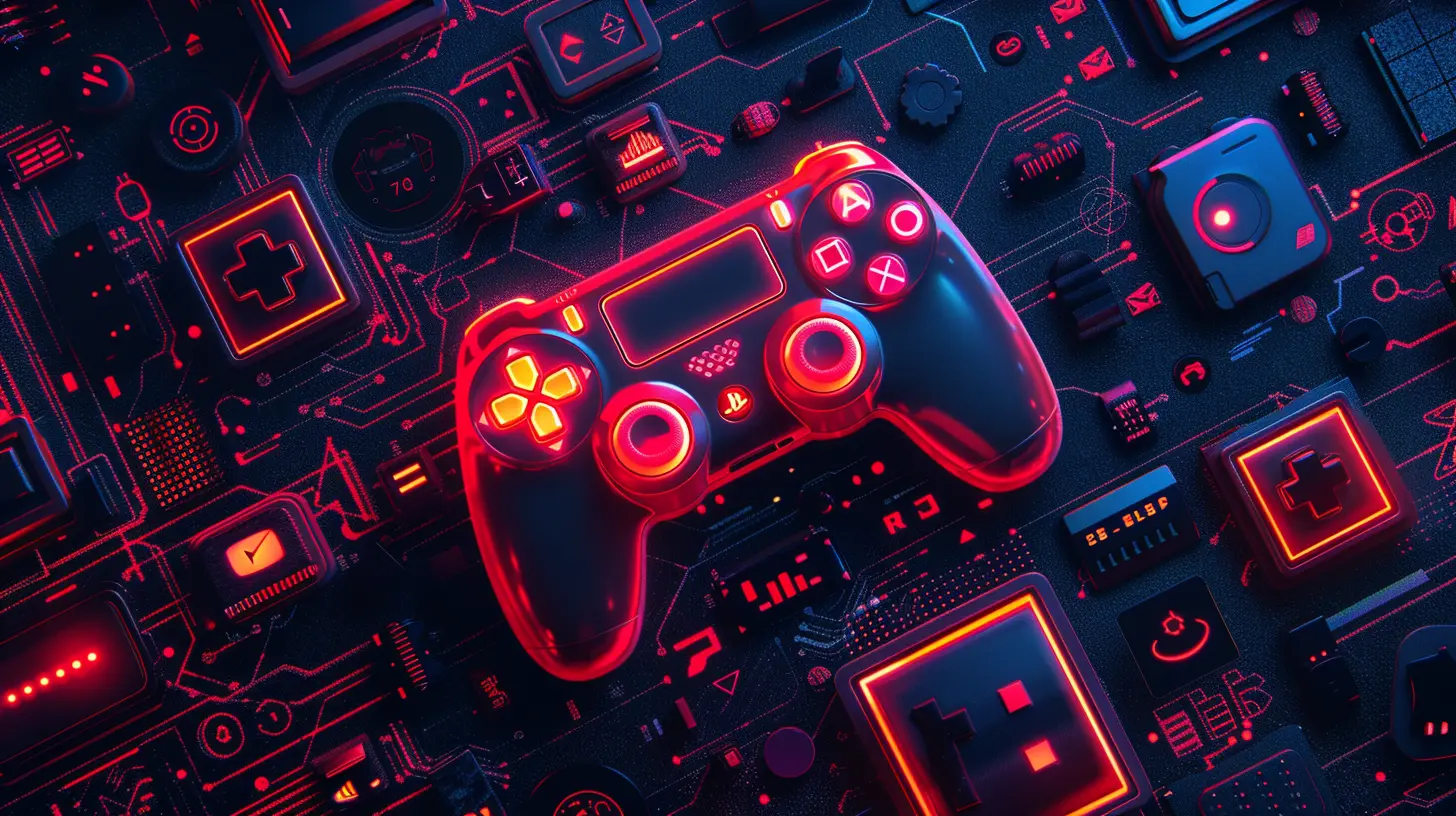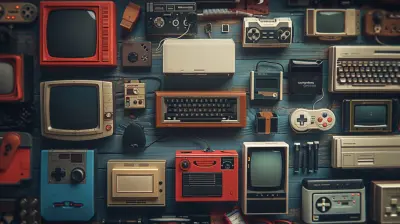The Ethics of Microtransactions and Their Impact on Players
1 December 2024
Video games have come a long way from the days of playing Pong on a black-and-white TV or blowing into cartridges just to make them work. Nowadays, the industry is more than just a pastime; it's a billion-dollar powerhouse constantly evolving to keep players coming back for more. One of the biggest shifts in the gaming world has been the rise of microtransactions. Love them or hate them, they’ve become an inseparable part of the modern gaming experience.
But are microtransactions good or bad? Are they fair, or are they just a sneaky way for companies to exploit their players? Let's dig into the ethics of microtransactions, how they affect players, and whether they’ve helped or hurt the industry.
What Are Microtransactions, Anyway?
Let’s start with the basics. Microtransactions are small payments made within a game to unlock extra content, cosmetics, or advantages. Think of it like ordering a side of fries to go with your burger, except your burger is the $60 game you already bought, and the fries might cost you an extra $10, $20, or even more.They come in many forms, like skins for your character, in-game currency, weapons, or even a "battle pass" that unlocks rewards as you play. Sometimes they’re purely cosmetic (like a cool outfit for your character), and sometimes they can influence gameplay (like a weapon that gives you an edge in combat).
Why Did Microtransactions Become So Popular?
So, how did we get here? The simple answer: money. Microtransactions make BIG money. Game developers realized that selling a game once for $60 gives you a flat return. But if you sprinkle in optional purchases, you can keep earning cash long after the initial sale.Free-to-play games, like Fortnite or Apex Legends, popularized this model. They let you play the game for free but make their money through microtransactions. And guess what? Gamers ate it up. On the surface, it feels like a win-win: the devs can keep supporting the game with updates, and players get to choose if and how much they spend. But this seemingly perfect setup has its fair share of ethical questions.
The Ethical Dilemma of Microtransactions
Now, here's where the debate heats up. Microtransactions might sound innocent, but they’re often wrapped in controversies. Let’s break it down.1. Are They Exploitative?
Ever felt like a game was designed to push you into spending money? You’re not crazy—it’s a real thing. Some games intentionally make progress slow or frustrating to tempt players into buying items or in-game currency to "speed things up." It’s like being offered a shortcut through a toll road after the main road was purposefully blocked with traffic cones.This practice is especially problematic for younger players or those who are vulnerable to impulsive spending. Many games are designed to trigger FOMO (fear of missing out), with limited-time offers or exclusive items that vanish after a certain period. That’s not just marketing—it can feel downright manipulative.
2. Pay-to-Win: A Dealbreaker for Fair Play
Remember the uproar over EA’s Star Wars Battlefront II? That controversy was all about pay-to-win mechanics. Players who spent real money could unlock advantages that gave them a clear edge over others. It's as if you showed up to a soccer game, but one team paid extra to get bigger goals and shinier cleats.For competitive games, pay-to-win completely undermines the concept of skill and fair play. It also creates a divide between the "haves" (those who spend) and the "have-nots" (those who can’t or won’t), turning what should be a fun, level playing field into a frustrating experience.
3. The Gambling Comparison
Let’s talk about loot boxes (and no, they’re not as innocent as they sound). A loot box is like a digital grab bag: you pay money to open it, but you don’t know what’s inside until after you buy it. You could get something cool, but you might just end up with a bunch of virtual junk.If that sounds like gambling, you’re not alone. Many governments have even started cracking down on loot boxes, arguing that they prey on people’s psychology—especially kids. Just like slot machines in a casino, they play on your desire to “hit the jackpot,” creating a potentially harmful addictive loop.
Do Microtransactions Have a Positive Side?
It’s not all doom and gloom, though. Microtransactions aren’t inherently evil. In fact, when done right, they can be good for both players and developers. Here’s how:1. Funding Free Games
Let’s face it—free-to-play games wouldn’t exist without microtransactions. Fortnite, for example, is free to download but garners billions of dollars annually through optional skins, emotes, and other cosmetics. Players get hours of entertainment without paying a dime if they don’t want to, and developers still get the funds they need to keep improving the game.2. Optional Customizations
For some players, microtransactions are all about personal expression. Can you imagine Fortnite without its crazy outfits or Call of Duty without custom gun skins? These types of purchases don’t give players an advantage—they just let them stand out. If done right, they’re completely optional and don’t affect gameplay for anyone else.Who’s Responsible for Ethical Microtransactions?
So, who’s to blame here—the developers, the publishers, or the players themselves? Maybe it’s all three.1. Developers and Publishers
Developers and publishers have a responsibility to find the right balance. Games shouldn’t feel like a cash grab or exploit their players. Transparency is key—players should know exactly what they’re spending their money on. Loot boxes, for example, should clearly display their odds.Triple-A games also need to rethink their pricing models. If you’re already charging $70 for a game, should microtransactions even exist? This double-dipping approach often fuels resentment in the gaming community.
2. Players
Let’s be honest—players also play a role. If we keep throwing money at exploitative microtransactions, companies will keep making them. Gamers need to vote with their wallets. Support games that respect their audience and avoid ones that lean too heavily on manipulative practices.The Future of Microtransactions
So, where do we go from here? The gaming industry is currently in a tug-of-war over microtransactions, and the outcome will likely shape the future of how games are developed and monetized.Some regions are already implementing stricter regulations, especially on loot boxes and pay-to-win mechanics. At the same time, developers are experimenting with new ways to monetize games—like subscription models (think Xbox Game Pass) or "season passes" that reward consistent play without feeling predatory.
As players, we also have more power than we realize. By supporting fair practices and speaking out against shady ones, we can help shape a future where microtransactions enhance games instead of ruining them.
Final Thoughts
Microtransactions are here to stay, whether we like it or not. The question isn’t if they’re ethical but how they’re implemented. When done responsibly, they can fund great games and give players fun, optional extras. When done poorly, though, they can feel like a tax on joy, dividing players and encouraging harmful habits.As gamers, it’s up to us to hold developers accountable and demand better practices. After all, games should be something we love, not something that leaves us feeling ripped off or taken advantage of. So, next time you’re about to buy that shiny new skin or tempting loot box, ask yourself—are you feeding into a system that respects its players, or one that preys on them?
all images in this post were generated using AI tools
Category:
Gaming CultureAuthor:

Tayla Warner
Discussion
rate this article
9 comments
Fenris Duke
Microtransactions often blur the line between fair play and exploitation, impacting player experiences and game balance. While they can fund ongoing development, developers must prioritize ethical practices to ensure players feel valued, rather than viewed as revenue sources in an ever-expanding gaming market.
February 3, 2025 at 3:45 AM

Tayla Warner
Thank you for your insightful comment! You're right; balancing revenue generation with ethical practices is crucial for fostering a positive player experience and maintaining game integrity.
Jordan McInerney
Thank you for shedding light on such an important topic. Microtransactions can greatly affect player experience and fairness in gaming. It's crucial for developers to consider ethical practices to ensure a positive environment for all players. Looking forward to more discussions on this!
January 27, 2025 at 4:19 AM

Tayla Warner
Thank you for your insightful comment! I completely agree that ethical practices in microtransactions are vital for maintaining a fair and enjoyable gaming experience. I appreciate your engagement and look forward to more discussions on this topic!
Starla McQuiston
Great article! You’ve highlighted crucial points about the ethical implications of microtransactions in gaming. It’s essential for developers to consider their impact on player experience and fairness. Looking forward to more discussions on this important topic!
January 15, 2025 at 6:03 PM

Tayla Warner
Thank you for your thoughtful comment! I appreciate your insights and look forward to continuing the conversation on this vital issue.
Roman Roth
Microtransactions can be frustrating, but they’re often necessary for keeping our favorite games alive!
December 29, 2024 at 6:01 PM

Tayla Warner
While microtransactions can support game development, they raise ethical concerns about fairness and player experience that need careful consideration.
Zevonis Adkins
Microtransactions can enhance gameplay but often lead to ethical dilemmas. They risk alienating players who feel pressured to spend money. Striking a balance between monetization and player experience is essential for a fair gaming environment that respects all players.
December 26, 2024 at 4:42 AM

Tayla Warner
Thank you for your insightful comment! Balancing monetization and player experience is indeed crucial to ensure fairness and enjoyment for all players in the gaming community.
John Mendez
Microtransactions: because who doesn’t love paying full price for a ‘deluxe’ pixelated hat?
December 20, 2024 at 3:53 PM

Tayla Warner
Microtransactions can detract from the gaming experience, turning enjoyment into a paywall that often frustrates players seeking a complete experience.
Thane Wells
Microtransactions often blur the line between fair play and exploitation, raising ethical concerns about accessibility and player experience. Their impact on player engagement and game design warrants scrutiny, as developers balance monetization with the integrity of gameplay, ultimately affecting the community's trust and enjoyment.
December 13, 2024 at 5:22 AM

Tayla Warner
Thank you for your insightful comment. You raise important points about the ethical implications of microtransactions and their potential to undermine player trust and enjoyment. Balancing monetization with fair play is indeed crucial for a healthy gaming community.
Hayden Heath
In the shadows of gaming's vibrant landscapes, microtransactions weave a complex web. Are they mere conveniences or insidious traps? As players navigate this labyrinth, the true cost of virtual treasures and choices lingers—forever altering the essence of enjoyment and community. What lies beneath?
December 11, 2024 at 4:15 AM

Tayla Warner
Microtransactions can enhance gameplay but often lead to exploitation, blurring the line between convenience and coercion. Their impact on community and enjoyment raises important ethical questions that deserve careful examination.
Sloane Huffman
Thought-provoking insights, thank you!
December 5, 2024 at 5:49 AM

Tayla Warner
Thank you for your kind words! I'm glad you found the insights valuable.
MORE POSTS

The Impact of Crowd Energy on Tournament Performance

How to Craft a Character That Fits Your Playstyle

How Speedrunning Has Changed the Way We Play Action Games

The Gaming Platform Accessories That Take Your Experience to the Next Level

Controversial Patch Leaves Players Divided

Behind the Scenes: How Gaming Tournaments Are Organized

The Role of Player Identity in Shaping Game Stories